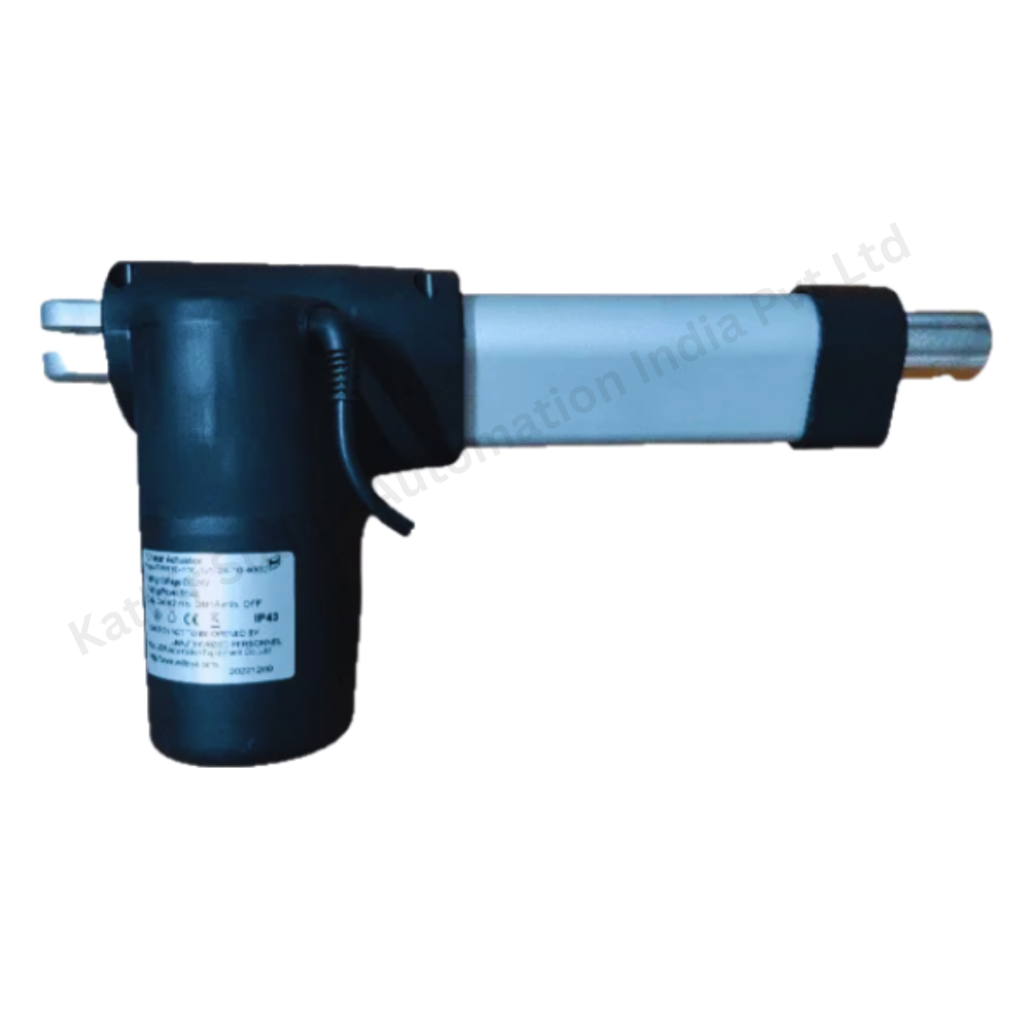In the fast-paced world of automation and precision engineering, one technological marvel stands out for its silent yet powerful contributions – the electric actuator. As industries continue to evolve, the demand for seamless motion control and increased efficiency has propelled electric actuators to the forefront of innovation.

Unveiling the Essence of Electric Actuator
Electric actuators, at their core, are devices designed to convert electrical energy into mechanical motion. Unlike their pneumatic or hydraulic counterparts, these actuators operate with precision, offering a level of control that is essential in various industrial applications.
1. Precision Redefined: Electric actuators are renowned for their accuracy in positioning and controlling movement. This precision is crucial in industries where even the slightest deviation can impact product quality or process efficiency. From manufacturing lines to robotics, the ability to finely control motion is a game-changer.
2. Versatility in Application: One of the standout features of electric actuators is their versatility. Whether it’s linear or rotary motion, these devices find applications across a spectrum of industries. From opening and closing valves in chemical plants to adjusting the pitch of wind turbine blades, the adaptability of electric actuators is a key driver of their widespread adoption.
The Technological Heartbeat
At the core of electric actuators lies a blend of cutting-edge technologies that synergize to deliver unparalleled performance.
1. Precision Motors: Electric actuators often incorporate high-performance motors such as stepper or servo motors. These motors provide the necessary torque and accuracy, enabling precise control over the actuator’s movement. The integration of these motors ensures a smooth and efficient operation, minimizing the risk of mechanical failures.
2. Intelligent Control Systems: The advent of smart technology has revolutionized electric actuators. Advanced control systems equipped with feedback mechanisms enhance the overall functionality. These systems can adjust parameters in real-time, adapting to changes in the environment or load conditions, thereby optimizing performance and ensuring operational reliability.
Eco-Friendly Advantages
Beyond their technological prowess, electric actuators also contribute to sustainable practices in industries.
1. Energy Efficiency: Electric actuators are inherently more energy-efficient compared to their pneumatic or hydraulic counterparts. They only consume power when in operation, eliminating the energy losses associated with maintaining pressure in fluid systems. This not only reduces operational costs but also aligns with the growing emphasis on environmentally friendly practices.
2. Reduced Carbon Footprint: The transition to electric actuators is a step towards reducing carbon footprints. With a lower reliance on hydraulic fluids or compressed air, industries employing electric actuators contribute to a cleaner, greener future.
Challenges and Future Trends
While electric actuators have undoubtedly transformed industries, challenges persist. Factors such as initial costs and the need for skilled maintenance personnel can be barriers to widespread adoption. However, ongoing research and development aim to address these challenges, making electric actuators more accessible and user-friendly.
1. Cost-Effective Solutions: Innovations in manufacturing processes and materials are driving down the initial costs of electric actuators. As economies of scale come into play, these technologies are becoming increasingly affordable, making them viable options for a broader range of applications.
2. Integration with Industry 4.0: The future of electric actuators lies in seamless integration with Industry 4.0 practices. Internet of Things (IoT) connectivity, predictive maintenance, and real-time data analysis are poised to enhance the capabilities of electric actuators, paving the way for more intelligent and adaptive automation systems.
Conclusion: Powering the Future
In conclusion, the journey into the realm of electric actuator technology unveils a landscape of precision, versatility, and eco-friendly innovation. As industries continue to prioritize efficiency and sustainability, electric actuators emerge as silent powerhouses, propelling us toward a future where motion control is not just a requirement but a strategic advantage. The electrifying progress of electric actuator technology is a testament to human ingenuity, driving us forward into a new era of automation and control.
